There aregood neighbors, bad neighbors, and then there are neighbors from hell.Unfortunately, the latter always seem to be the most relentless. The woman living next door to thisRedditor’sfamily, for instance, has been harassing them for years—spying on them, hurling rude remarks, filing complaints with animal control, and constantly involving the police.But her latest stunt was the final straw, and it looks like she’s finally about to face the consequences.RELATED:The woman has spent years harassing the family next doorImage credits:Rawpixel (not the actual image)But her latest stunt was the final straw, and it looks like she’s finally about to face the consequencesImage credits:Fujiphilm (not the actual image)Image credits:Phan Cuong (not the actual image)Image credits:lunopark (not the actual image)Image credits:fuzzy_trichomeWe no longer trust our neighbors like we used toEven if our neighbors aren’t outright terrible, it seems we’re not as friendly with them as we used to be. At least, that’s what the research suggests—especially in the U.S.According to data from theGeneral Social Surveyover the last five decades, the percentage of Americans who spend a social evening with a neighbor at least several times per month has fallen significantly, from 44% in 1974 to just 28% in 2022. This drop in neighborly interaction goes hand in hand with a broader decline in societal trust. In the early 1970s, 46% of Americans believed that others could generally be trusted, but today, only 26% feel the same way.“People seem to have their favorite theory about why things have changed,”saysDavid Burton, a community development specialist with the University of Missouri Extension. “I’ve heard the blame placed on things like fenced yards, homes without front porches, too much indoor entertainment, electric garage doors, and even air-conditioning. But those are all external sources of blame, while the actual responsibility rests with each of us and our choices.”Burton explains that research over the past decade has identified four main reasons why Americans communicate less with their neighbors: loneliness, busyness, retreat mentality, and an entertainment-focused lifestyle.Being lonely, paradoxically, can make people withdraw and interact less with those around them“It seems contrary to what you might think, but you do not reach out to others if you are lonely and often say no to social invitations. We currently have an epidemic of loneliness in America,” Burton says.Busyness is another contributing factor. Americans tend to overload their schedules, leaving little room for neighborly connections. “We complain about being busy, but at the same time, we love to tell people we are busy. Being busy makes us feel important. We take on too many tasks, we sign ourchildrenup for too many activities, and we clutter our schedule with things seven days a week,” adds Burton.The retreat mentality reflects how many Americans view their homes as sanctuaries where they want to be left alone. “Our home can be our safe place, but using it as a fortress of solitude is not healthy,” argues Burton.Finally, there’s our focus on entertainment. “We buy larger televisions, connect them to the internet, and entertain ourselves until we fall asleep. We sit and watch Netflix and play video games until bedtime. The average American watches 3.1 hours of television per day. No wonder we don’t have time for neighbors,” says Burton.Now that you know the reasons why we’ve become less neighborly, Burton believes it’s time for a change. “Be intentional about being outside. Watch and speak to neighbors that you see. And take steps to learn and use the names of your neighbors. That is the starting line so get on your mark,” he concludes.Concerned readers suggested that the author contact the police to address the situation appropriatelyThanks! Check out the results:
There aregood neighbors, bad neighbors, and then there are neighbors from hell.
Unfortunately, the latter always seem to be the most relentless. The woman living next door to thisRedditor’sfamily, for instance, has been harassing them for years—spying on them, hurling rude remarks, filing complaints with animal control, and constantly involving the police.
But her latest stunt was the final straw, and it looks like she’s finally about to face the consequences.
RELATED:
The woman has spent years harassing the family next door

Image credits:Rawpixel (not the actual image)
But her latest stunt was the final straw, and it looks like she’s finally about to face the consequences
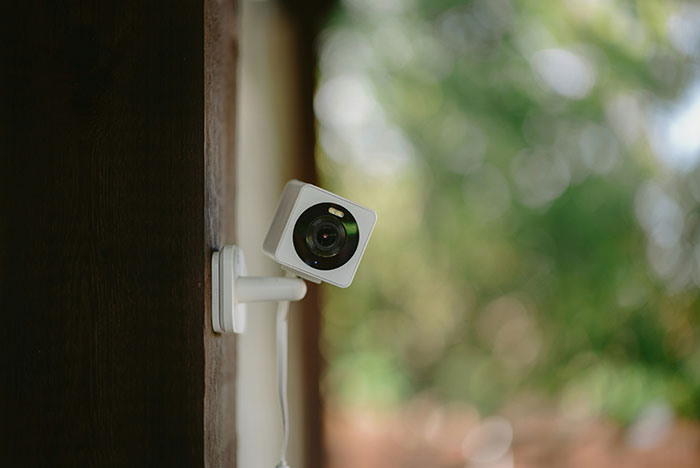
Image credits:Fujiphilm (not the actual image)

Image credits:Phan Cuong (not the actual image)

Image credits:lunopark (not the actual image)
Image credits:fuzzy_trichome
We no longer trust our neighbors like we used to
Even if our neighbors aren’t outright terrible, it seems we’re not as friendly with them as we used to be. At least, that’s what the research suggests—especially in the U.S.
According to data from theGeneral Social Surveyover the last five decades, the percentage of Americans who spend a social evening with a neighbor at least several times per month has fallen significantly, from 44% in 1974 to just 28% in 2022. This drop in neighborly interaction goes hand in hand with a broader decline in societal trust. In the early 1970s, 46% of Americans believed that others could generally be trusted, but today, only 26% feel the same way.
“People seem to have their favorite theory about why things have changed,”saysDavid Burton, a community development specialist with the University of Missouri Extension. “I’ve heard the blame placed on things like fenced yards, homes without front porches, too much indoor entertainment, electric garage doors, and even air-conditioning. But those are all external sources of blame, while the actual responsibility rests with each of us and our choices.”
Burton explains that research over the past decade has identified four main reasons why Americans communicate less with their neighbors: loneliness, busyness, retreat mentality, and an entertainment-focused lifestyle.
Being lonely, paradoxically, can make people withdraw and interact less with those around them
“It seems contrary to what you might think, but you do not reach out to others if you are lonely and often say no to social invitations. We currently have an epidemic of loneliness in America,” Burton says.
Busyness is another contributing factor. Americans tend to overload their schedules, leaving little room for neighborly connections. “We complain about being busy, but at the same time, we love to tell people we are busy. Being busy makes us feel important. We take on too many tasks, we sign ourchildrenup for too many activities, and we clutter our schedule with things seven days a week,” adds Burton.
The retreat mentality reflects how many Americans view their homes as sanctuaries where they want to be left alone. “Our home can be our safe place, but using it as a fortress of solitude is not healthy,” argues Burton.
Finally, there’s our focus on entertainment. “We buy larger televisions, connect them to the internet, and entertain ourselves until we fall asleep. We sit and watch Netflix and play video games until bedtime. The average American watches 3.1 hours of television per day. No wonder we don’t have time for neighbors,” says Burton.
Now that you know the reasons why we’ve become less neighborly, Burton believes it’s time for a change. “Be intentional about being outside. Watch and speak to neighbors that you see. And take steps to learn and use the names of your neighbors. That is the starting line so get on your mark,” he concludes.
Concerned readers suggested that the author contact the police to address the situation appropriately
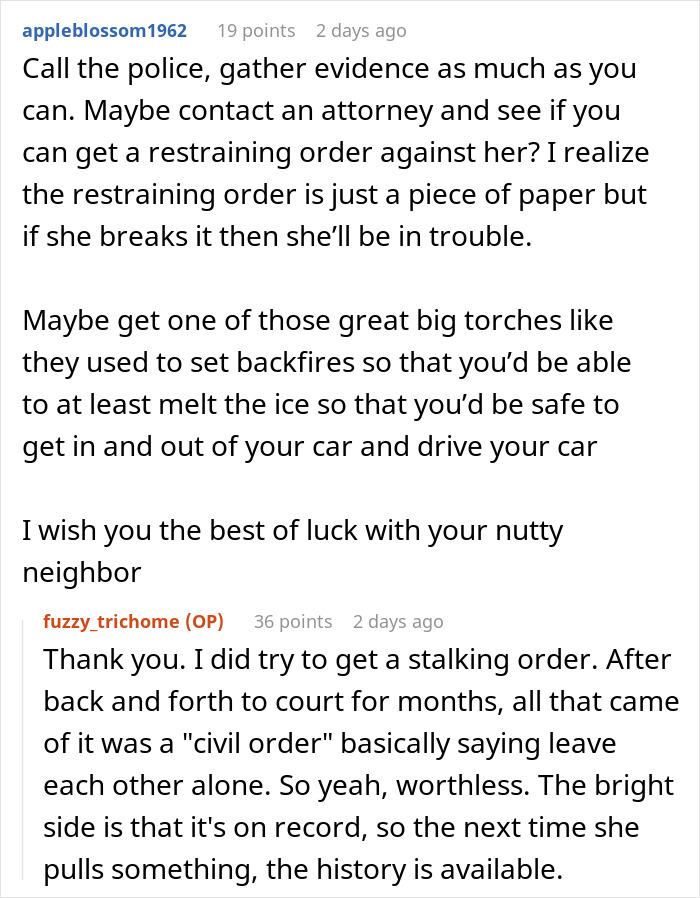
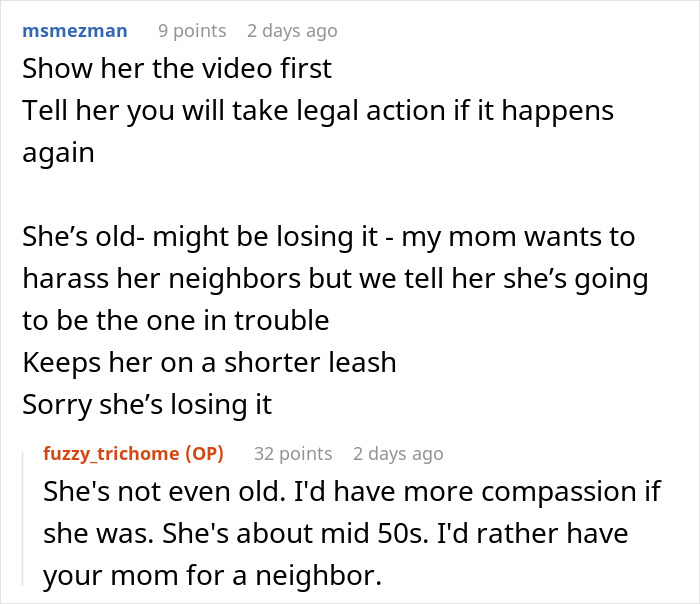


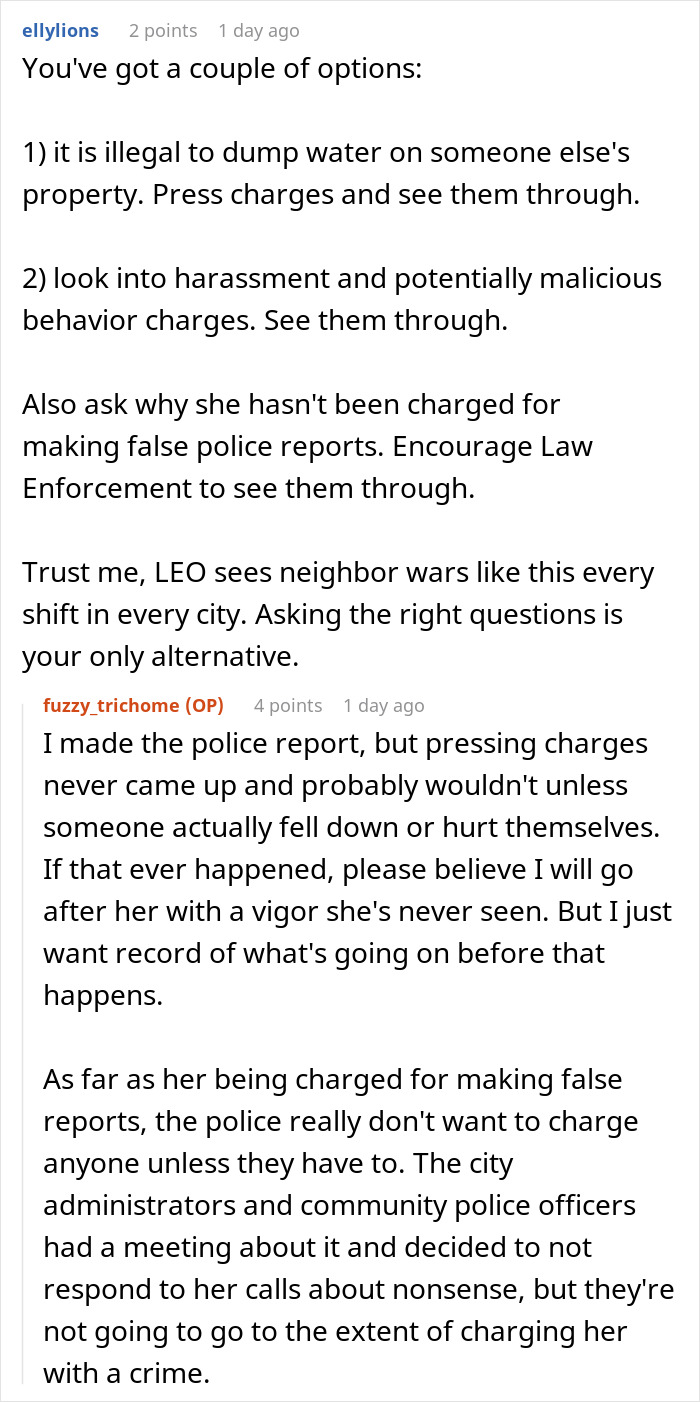



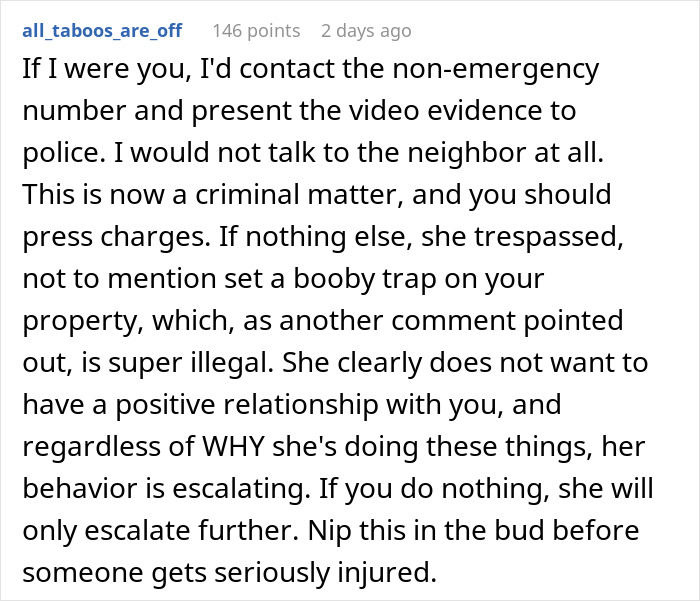



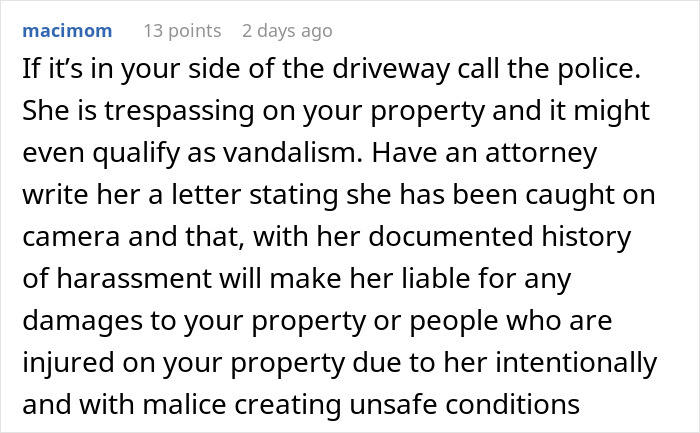

Thanks! Check out the results:You May LikeEntitled Neighbors Take Advantage Of Woman With Alzheimer’s To Take Over Her Driveway, Regret ItJonas Zvilius“A Light Inside My House?”: Woman Refuses To Turn Off Her Kitchen Light For Karen’s ConvenienceJustinas KeturkaWoman’s Icy Revenge On Neighbor Works WondersDominyka
Jonas Zvilius
Justinas Keturka
Dominyka
Social Issues